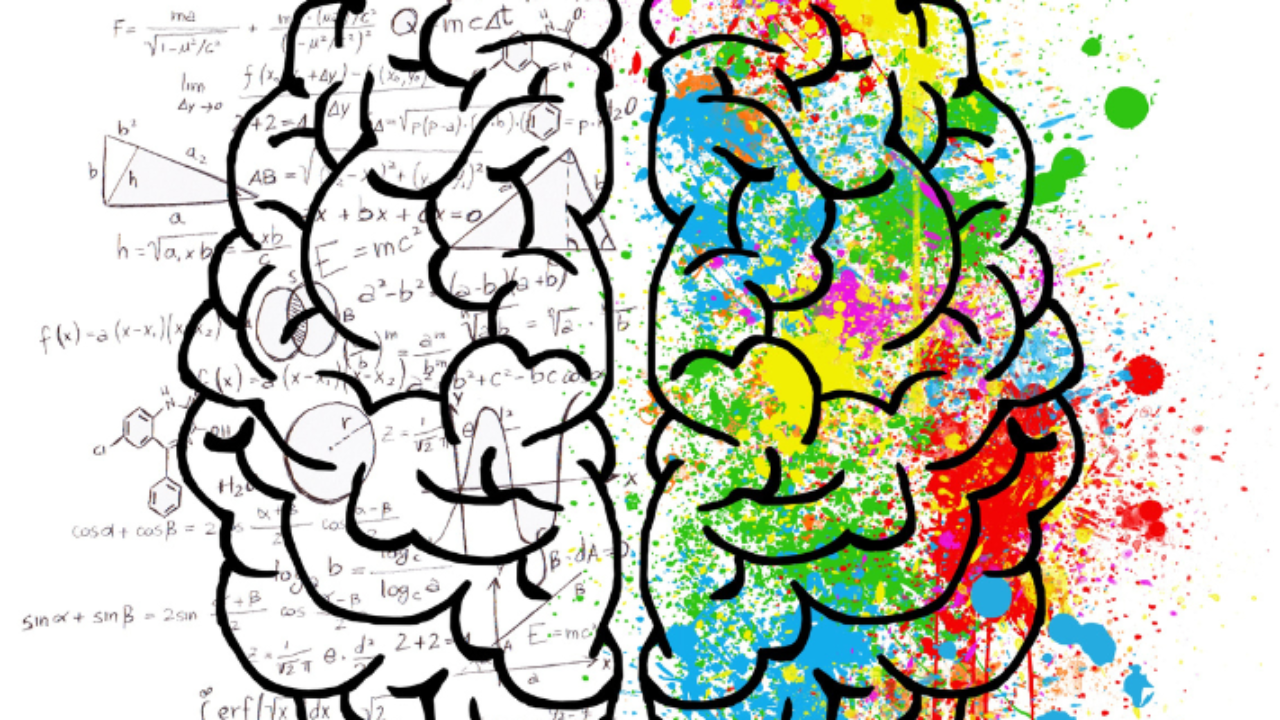Rethinking ADHD: Beyond Deficits to Understanding Different Brains

A Conversation with Dr. Brian Plante, ND with The Amen Clinics
For too long, we've looked at ADHD through the lens of deficiency—what's wrong, what's missing, what needs to be fixed. But what if we've been asking the wrong questions? Dr. Brian Plante, a naturopathic doctor with Amen Clinics who himself understands the world of neurodivergence on a personal level, offers a refreshingly different perspective that could transform how we understand attention differences.
Top-Down vs. Bottom-Up: Two Ways of Processing the World
Dr. Plante explains that our brains process attention in two primary ways: top-down and bottom-up.
Top-down processing is like seeing the forest first. It's when your brain uses plans, prior knowledge, and goals to filter sensory input, screening out what's irrelevant to your current focus. Most neurotypical brains operate primarily this way—they can tune out the background noise of a coffee shop to concentrate on their laptop.
Bottom-up processing takes in sensory information with minimal filtering, then assembles all those details into a cohesive whole. It's like noticing every individual tree, the texture of the bark, the insects crawling on branches—all before recognizing you're in a forest.
ADHD brains blend both styles, with an added twist: interest-driven attention. When someone with ADHD finds something genuinely engaging, they can hyperfocus intensely. The challenge isn't a deficit of attention—it's about context, environment, and intrinsic motivation.
The Neuroscience Behind the Experience
Dr. Plante shares a fascinating insight about synaptic pruning—the brain's natural process of removing unnecessary neural connections as we age. ADHD brains undergo less pruning than neurotypical brains, meaning more cell-to-cell connections remain intact.
"It's like neurodivergent brains are microdosing psychedelics all the time," Dr. Plante explains. The brain is processing more information simultaneously, which explains why someone with ADHD might feel like they're several thoughts ahead in a conversation, waiting impatiently for others to catch up.
This also explains the common experience of environmental sensitivity. Some people with ADHD need complete silence to focus, while others thrive in chaotic environments with multiple stimuli—music, TV, and conversation all happening at once. The key is understanding your own processing style.
When Stillness Brings Discomfort
One particularly striking part of the conversation addressed what happens when external stimulation stops. For many with ADHD, silence doesn't bring peace—it brings an overwhelming rush of emotions trying to "get through the door like the Three Stooges," as one participant described it.
Dr. Plante explains this through the lens of nervous system regulation. Sometimes we need sensory input—movement, sound, activity—to stay within our window of tolerance. Exercise, particularly running or other rhythmic activities, can provide the proprioceptive feedback that helps regulate the nervous system when cognitive load is high.
The question becomes: When is seeking stimulation a healthy way to manage your nervous system, and when is it avoiding difficult emotions that need attention?
The Environment Matters—A Lot
Light exposure, sleep quality, blood sugar, and even the level of background noise profoundly impact ADHD symptoms. Dr. Plante shares research showing that light pollution during sleep increased depression scores by 60%, even with eyes closed. For ADHD brains with heightened sensitivity, these environmental factors aren't just preferences—they're necessities.
Understanding your unique needs is crucial. Do you need blackout curtains and blue-blocking glasses? Do you focus better with background noise or in silence? Does morning exercise set you up for a focused day? These aren't luxuries—they're accommodations that allow neurodivergent brains to function optimally.
Beyond Labels: The Human Connection
Perhaps most powerfully, the conversation revealed how understanding these differences transforms relationships. When a family member pointed out inattention, it could trigger defensiveness and shame—or, with adequate rest and self-awareness, it could be met with humor and grace.
Dr. Plante emphasizes that self-disclosure and honest communication are transformative. "I know you want my attention right now and I care about you. What I have capacity for today is this." This kind of vulnerability reduces conflict and deepens connection.
Redefining Medical Care
The discussion also touched on what makes a good doctor in the age of AI and information abundance. It's no longer about having all the answers—it's about relationship, honesty, and collaboration.
As one patient powerfully shared: "I'd rather you say 'I don't know, and we'll work on this together' than give me something that's not true." When a doctor admitted he'd done everything he knew and didn't have answers, she responded with faith in him as a person, not just his medical knowledge. And things started turning around.
The Path Forward
ADHD isn't a deficit—it's a different operating system. Understanding whether you process information top-down or bottom-up, what environments help you thrive, and how to communicate your needs can transform how you experience life.
The goal isn't to make ADHD brains work like neurotypical ones. It's to create environments, relationships, and systems that honor how these brains actually function—and to recognize the unique gifts that come with seeing the world differently.
Dr. Brian Plante is a naturopathic doctor with Amen Clinics who specializes in integrative approaches to mental health and neurodiversity. He is also a circling facilitator trainer, bringing embodied relational practices into healthcare.
